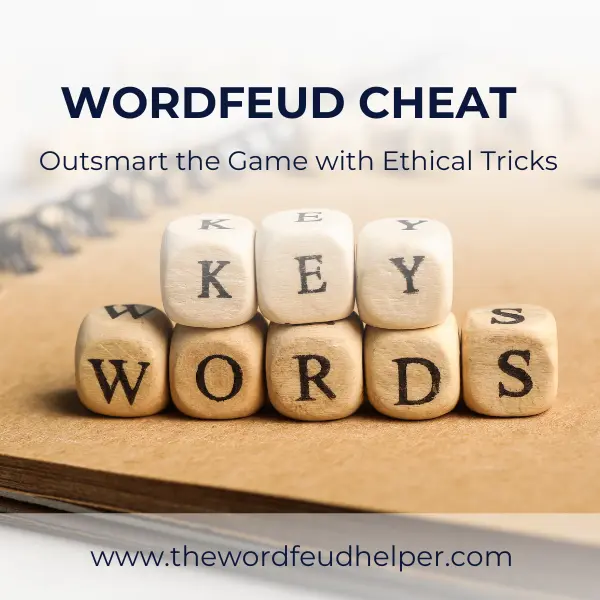Wordfeud Tips – Expert Strategies to Win Every Game
If you’re hooked on the thrill of forming high-scoring words and dominating your opponents in Wordfeud, you’re not alone. This addictive multiplayer word game combines vocabulary, strategy, rules of the game, and a touch of luck, making it as challenging as it is fun. Whether you’re a beginner or someone who’s been playing for years, there’s always room to sharpen your skills with the latest Wordfeud tips and tricks.
In this post, I’ll share practical tips and tricks that can take your gameplay to the next level. From smart first moves to defensive strategies and sneaky scoring tricks, this guide is packed with advice to help you win more often and enjoy the game even more. Let’s dive into the world of smarter, sharper Wordfeud play.
Wordfeud Tips – Strategies for Smarter Play
Mastering Wordfeud takes more than just a good vocabulary. It’s a strategic game, and the best players use positioning, board control, and timing to maximize their scores. In this section, we’ll explore smart gameplay habits, expert techniques, and overlooked tricks that can give you the upper hand, whether you’re playing in English, Dutch/Netherlands, or against bots.
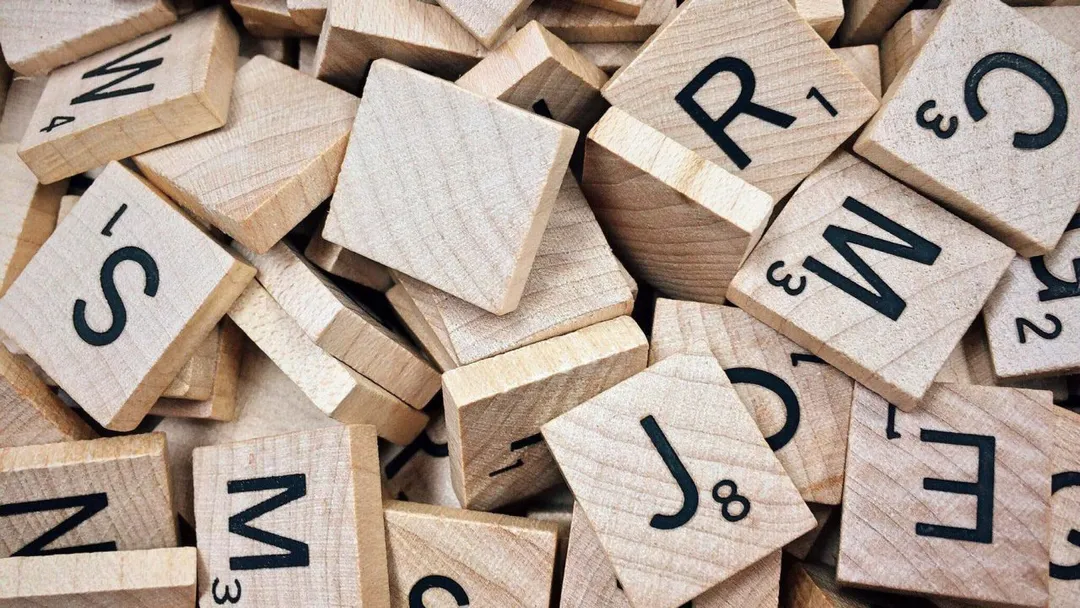
Make a Strong Start: First Move Strategies
The first turn doesn’t guarantee a win, but it can give you a nice head start. If your starting rack doesn’t have any high-value plays, don’t be afraid to swap your tiles; it’s better to start strong than struggle later. Use the shuffle feature for inspiration. Placing a word in a way that opens up access to double or triple word tiles for your next move can be a smart setup.
💡 Pro tip: If your first move doesn’t reach a double word tile, aim to build toward it without giving your opponent an easy opportunity.
Long Words vs. Short Words: What Really Matters?
Long words may look impressive, but they’re not always the best choice. Often, short, high-value words placed strategically can give you a better score. Learning 2-letter and 3-letter words that include rare letters like Z, X, Q, and J is one of the smartest moves you can make.
Use short combos like:
Keep your eye on the bonus squares sometimes, placing a small word on a triple letter or double word space gives you more points than a long word elsewhere.
When to Exchange Tiles and When Not To
Swapping tiles can feel like giving up a turn, but sometimes it’s the smartest option. If you’re stuck with all consonants or too many vowels, consider swapping, especially early in the game. But don’t overdo it.
Exchange only when:
Avoid swapping:
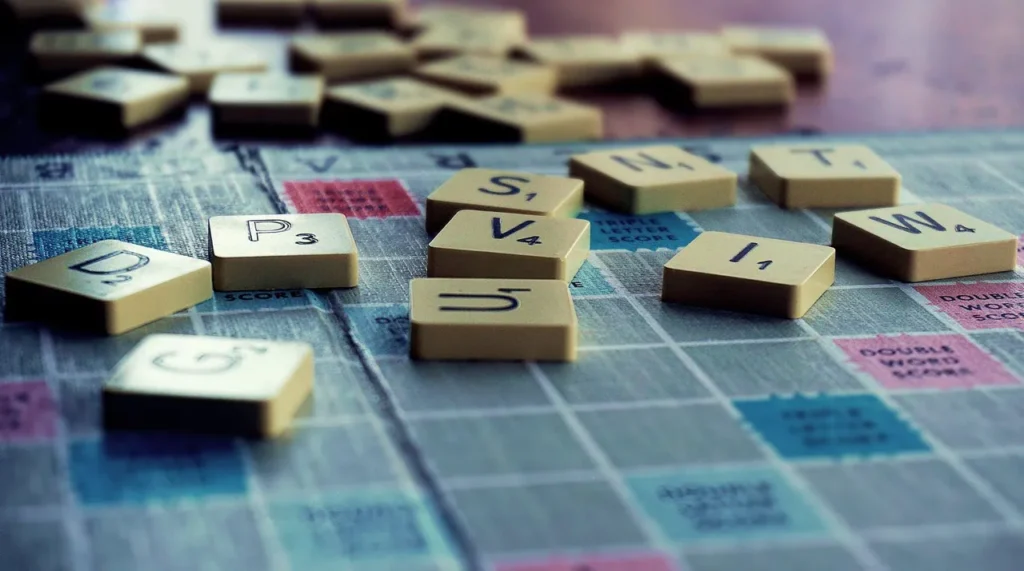
Know Your Letters: Master High-Value and Blank Tiles
The tiles C, Q, X, Z, and J are your ticket to big points if you know how to use them. Memorize high-value combinations (e.g., EX, OX, QAT, JO) and always try to place them on DL (double letter) or TL (triple letter) tiles.
Also, blank tiles can be game changers, but don’t waste them on low-scoring plays. Save them for Bingo setups or to form hard-to-spell words when you’re tight on options.
Play Defensively, Don’t Set Up Your Opponent
Sometimes the best move is the one you don’t make. Avoid placing words that open up access to bonus squares, especially the 8 dangerous TW (triple word) tiles on standard boards. If you can’t use them, don’t hand them over.
Other defensive tips:
Think Beyond the Word: Use the Board Smartly
Focus less on flashy words and more on placement. Look for spots where your word can touch multiple existing tiles to form several new words at once (a “parallel play”). Extend small words into longer ones. Add prefixes like RE-, UN-, DIS-, or suffixes like -ED, -ING, -LY to build easily.
Example: Add S to “HAT” to make “HATS” and form “SO” vertically.
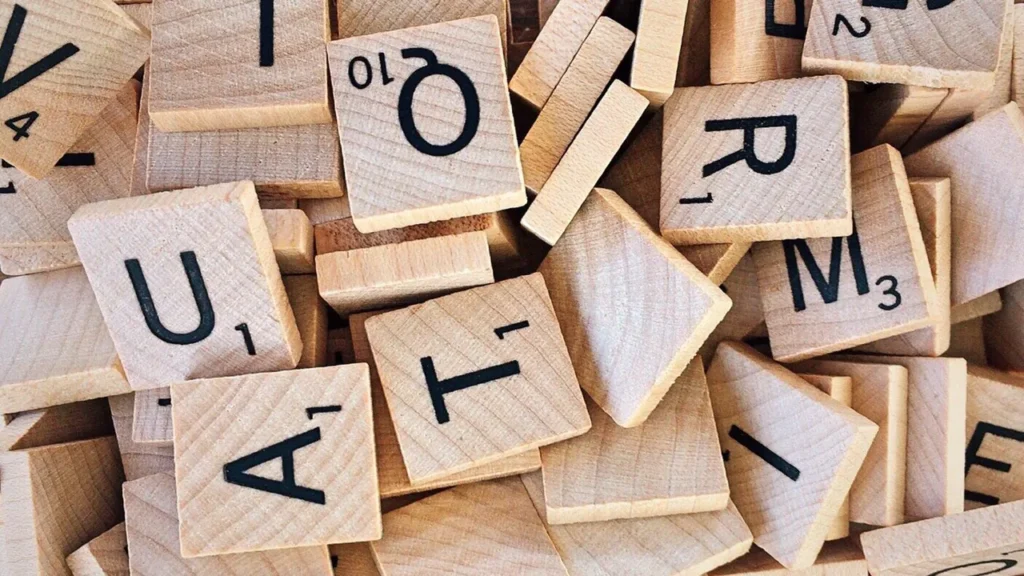
Smart Vocabulary Wordfeud Tips & Tricks
Learning helps, but so does cheating a little. While we don’t encourage using Wordfeud bots all the time, tools like Wordfeud Helper, tile trackers, and even Dutch-specific versions like Wordfeud Help NL can be handy for training your brain.
Use them to:
Use Every Tool: Wordfeud Help Apps and Features
If you’re playing on the Wordfeud app, make the most of features like:
And don’t forget some players use Wordfeud cheat online to find the best word for their letters. You decide if you want to keep it pure or go full ninja mode.
Play Smart, Play Often: Keep Leveling Up
Winning takes more than just tips; it takes practice. Play different opponents, try new strategies, and don’t be afraid to lose a few rounds. You’ll learn patterns, word endings, and board layouts over time.
Whether you’re grinding your way to the top of the leaderboard or just playing casually with friends, these strategies will help you make smarter plays, use your tiles better, and enjoy the game more.
Quick Wordfeud Tips & Tricks
Game-Winning Tips
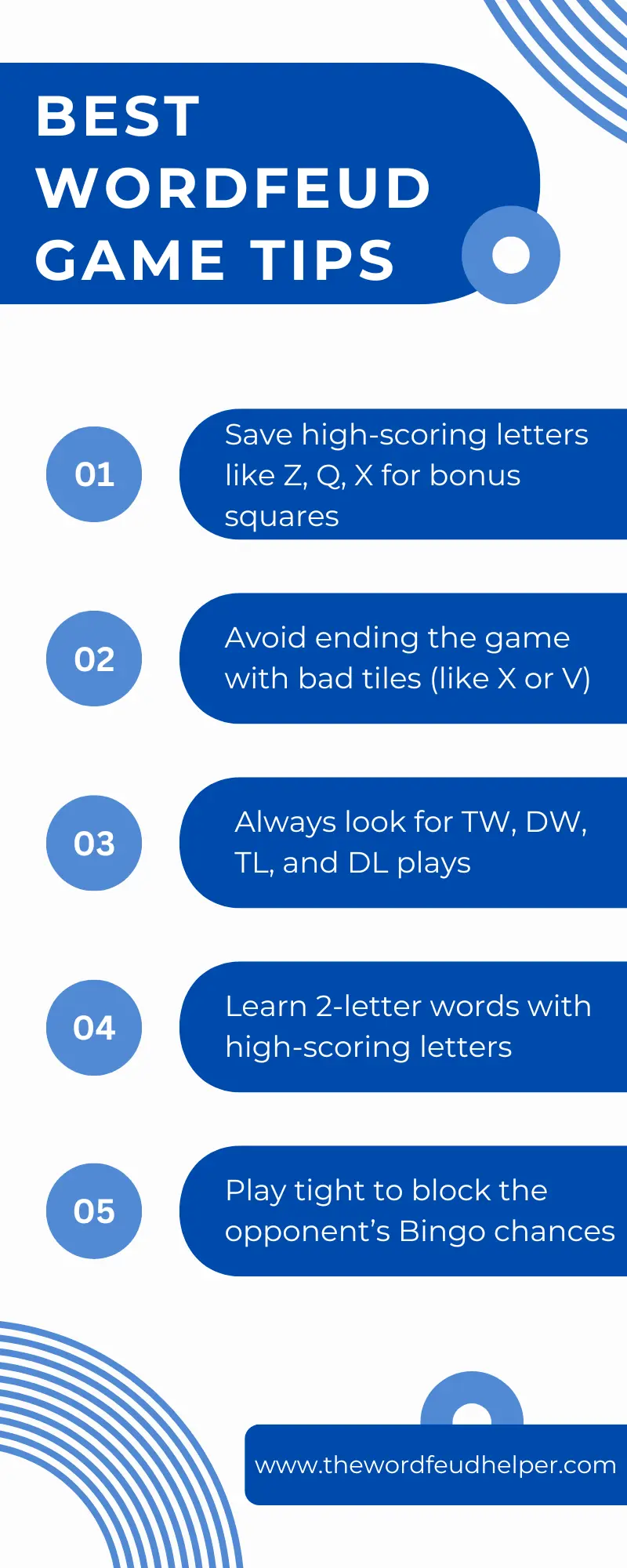
Infographic – The best Wordfeud game-winning tips.

